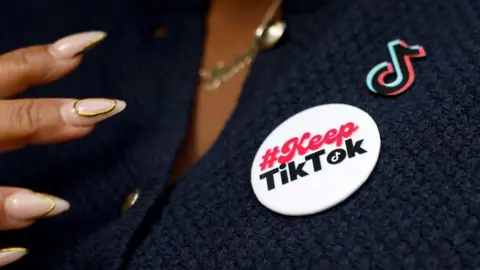The United States Supreme Court has decided to hear TikTok’s appeal against efforts to ban or sell the popular short-video platform within the country. This decision is set against a backdrop of increasing scrutiny and regulatory challenges directed towards TikTok, primarily due to concerns raised by the U.S. government regarding the app’s potential ties to the Chinese government. These allegations have been consistently denied by TikTok and its parent company, ByteDance.
In its pursuit to contest the proposed restrictions, TikTok is preparing to present its arguments before the Supreme Court on January 10, 2024. This date is crucial as it falls just nine days prior to the government’s ban on the application, which is expected to significantly disrupt the platform’s operations in the U.S. The Supreme Court’s choice not to grant TikTok an emergency injunction against this law indicates a complex legal landscape where the importance of national security is weighed against corporate and user freedoms.
Earlier in December, a federal appeals court had dismissed TikTok’s previous attempts to overturn the legislative measures aimed at banning it, stating that these actions were the result of extensive bipartisan efforts by Congress and were supported by various presidential administrations. This ruling underscores the existing political climate surrounding TikTok, where issues of data security and user privacy are debated amidst concerns over foreign interference.
The Supreme Court is considered the ultimate legal authority in the United States, taking on only a handful of cases each year out of thousands of petitions submitted. Given the significance of this case, it highlights not only the operational fate of TikTok but also the broader implications for digital rights and free speech in the context of social media platforms. TikTok has previously contended that a ban would violate the First Amendment rights of the 170 million users in the United States, emphasizing the platform’s role in facilitating communication and creative expression.
However, TikTok’s battle against the restrictive legislation may not be solely dependent on the outcome of the legal hearings. The political landscape, particularly with the upcoming presidential election and the potential for Donald Trump’s return to power, may also influence its fate. Reports indicate that Trump recently met with TikTok’s CEO, Shou Zi Chew, in Florida, where he expressed a favorable view of TikTok. Despite having initiated a ban on the platform during his presidency, Trump now opposes the ban and has highlighted the significance of youth voters, suggesting that his favorable relationship with TikTok contributed to his appeal among younger demographics.
While Trump’s support could present a possible avenue for TikTok’s revival, it is important to note that he is not expected to assume office until January 20, which is the day after the anticipated ban is set to take effect. Furthermore, internal political dynamics remain complex; for instance, Senate Republican leader Mitch McConnell has publicly urged the Supreme Court to dismiss TikTok’s legal arguments as being without merit.
Moreover, TikTok is not entirely devoid of support in this contentious environment. Several civil liberties organizations have rallied behind the platform, filing joint pleas to the court to safeguard a service widely used for personal expression and social connection. These groups argue that millions rely on TikTok for various forms of communication, education, and creative engagement.
In conclusion, the Supreme Court’s upcoming deliberations regarding TikTok represent a pivotal moment in the intersection of technology, law, and civil liberties. As the situation evolves, the implications will resonate well beyond the app itself, potentially affecting digital rights and the operational latitude of numerous social media platforms in the age of increasing governmental oversight.



